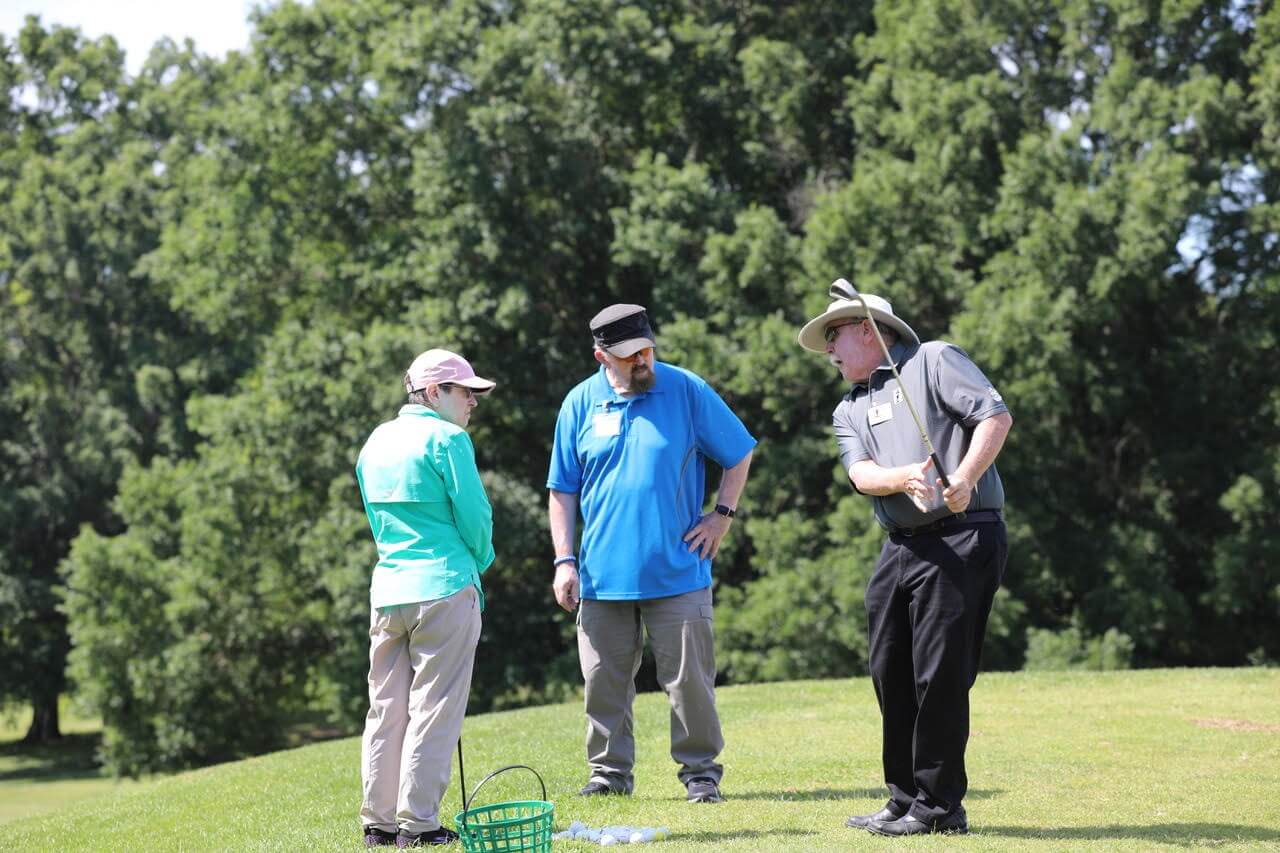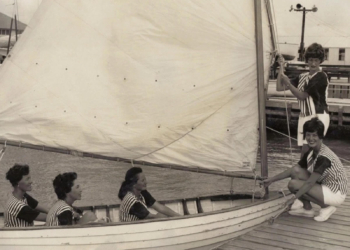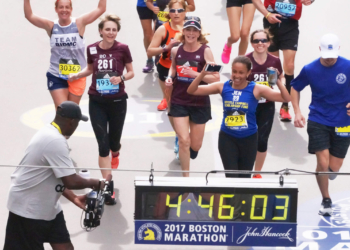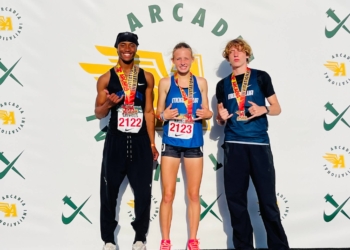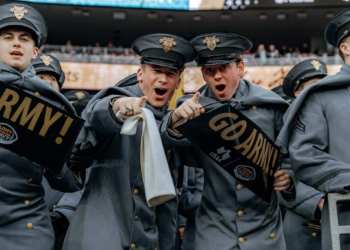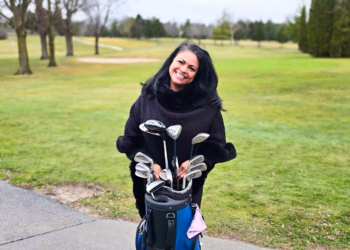A national-leading therapeutic golf program that registered its first blind veteran is helping the former airman embrace a passion for the sport.
Links to Freedom (L2F), which was founded in 2008 at Fort Belvoir, Virginia, has instructed more than 5,000 disabled veterans, one swing at a time.
One of the newest attendees of the L2F is Hunter Mathews, a retired Air Force veteran with 22 years of service. He recently completed his first 16-week session in the program at Fort Belvoir Golf Club.
Mathews eventually discovered L2F after a motorcycle accident stripped him of his vision.
“When the accident first happened, I was devastated. I had been riding motorcycles for 45 years.”
He began looking for other meaningful activities. Then, a friend told him about Links to Freedom.
After that first 16-week session, he says, “I am forever grateful to L2F.”
While he relearned the rudiments of golf through a blind perspective, he was more appreciative of his newfound positive mental outlook.
“I’m blessed with a tremendous aptitude to deal with life on life’s terms,” he said with a Southern drawl. “When life gets lifey, we have no choice but to adapt to life’s sudden changes.”
Though Mathews is the first blind golfer in the L2F program, he is no stranger to golf. While growing up, his parents played golf on a regular basis.
“I played in many MWR-sponsored Friday night golf events,” he shared. Mathews also golfed at various military installations during his career.
No matter what his golfing skill level was, stripping away his eyesight nullified all that Mathews learned and knew about the game.
“When I strike the ball, I can’t see where it’s going,” he says, but Deborah Mathews, his wife, caddy, and confidant, keeps him on the straight and narrow, no matter where the ball ends up.
According to L2F Chairman of the Board Rob Koon, an Air Force veteran, the 16-week program is taught by PGA and LPGA professional golfers.
“There is no graduation from the program, or limits on attending,” he said. “In fact, some attendees have been around for several years. We have one guy who started in 2010, and he is still participating in the program today!”
Koon shares another remarkable statistic about the program. “Roughly 90% of volunteers are alumni of the program. L2F is also a family-friendly program where kids and spouses, like Deborah Mathews, can attend, and this is all free of charge.”
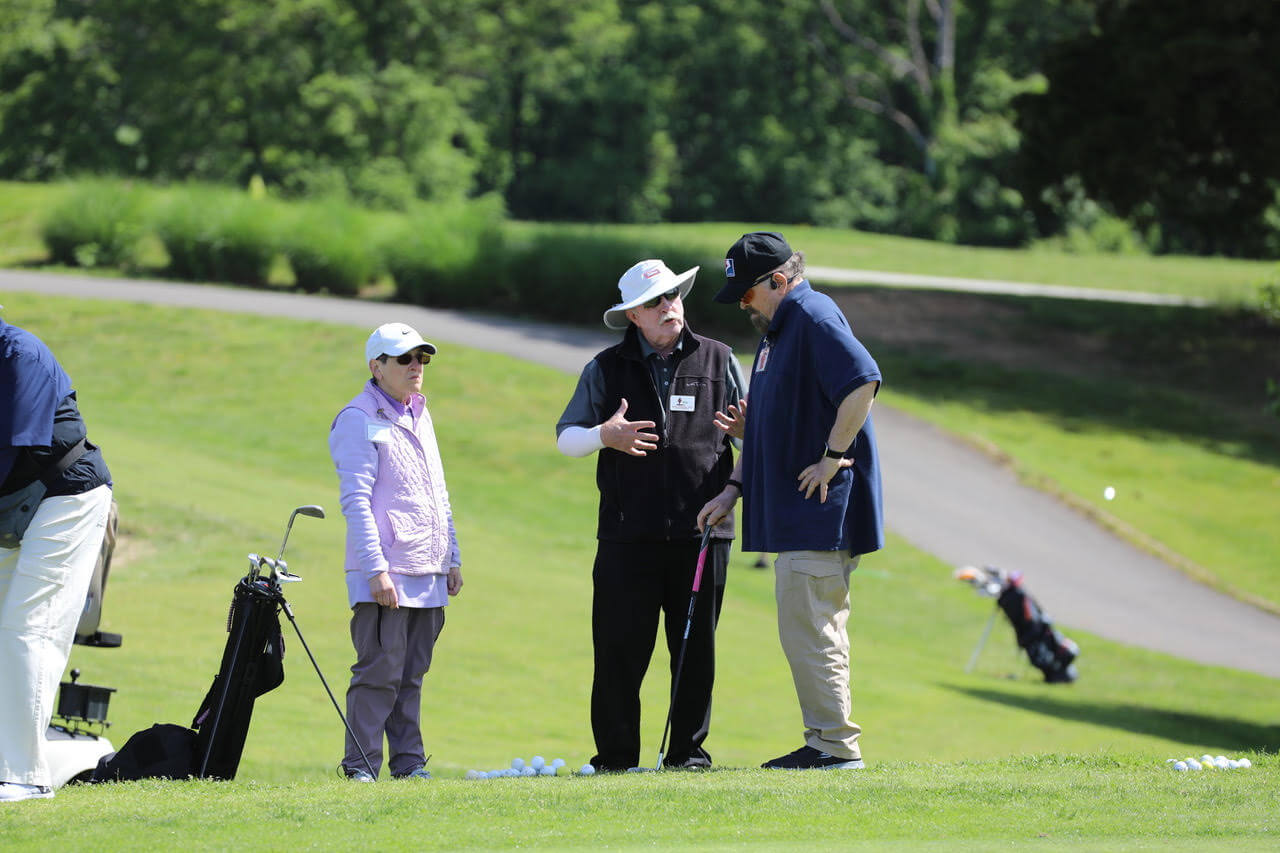
The L2F chairman points out how golf course aesthetics play an important role in the eventual healing process of veterans.
“Golf is relaxing, and the greenery that’s everywhere, along with chirping birds and blue sky, all serve as a calming effect. This is a huge contrast from the battlefield,” he added.
An avid golfer himself, Koon reminds readers that the nonprofit L2F program is offered at no cost to the service member or their families.
“Through your generous support, we’ll increase our reach to more than 500 wounded and disabled service members and veterans in the coming months,” he said.
While Links to Freedom got its start at Fort Belvoir, there are other programs around the country. The focus of the program centers around Soldier Recovery Units throughout the country; programs can be found at Fort Liberty, North Carolina; Fort Bliss, Texas; Fort Sam Houston, Texas; and Baltimore, Maryland.
Planned programs include Fort Moore, Georgia; JBLM, Washington state; Fort Campbell, Kentucky; Fort Carson, Colorado; Fort Drum, New York; Fort Riley, Kansas; Fort Stewart, Georgia; and Schofield Barracks, Hawaii.
Like Hunter Mathews, numerous other veterans praise the program. L2F attendees include the blind, those experiencing post-traumatic stress, and amputees, to name a few.


